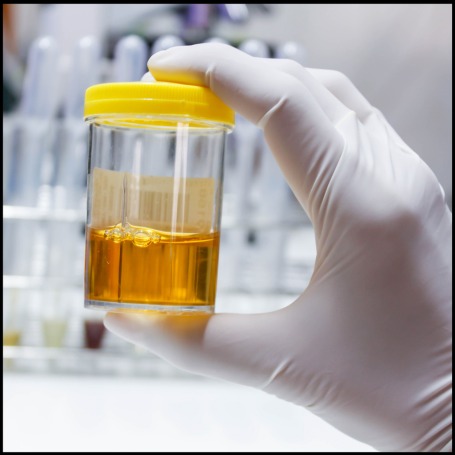
BUN is a waste product produced by the liver during the breakdown of proteins in the body. As protein is metabolized, the amino acids are broken down, and nitrogen is released.


The 24-hour urine BUN (Blood Urea Nitrogen) test Pune is an important diagnostic tool used to evaluate kidney function. It measures the amount of urea nitrogen, a waste product formed from protein breakdown, excreted in urine over a 24-hour period. By analyzing BUN levels in the urine, healthcare providers can assess how well the kidneys are filtering waste products, particularly urea nitrogen, and detect potential kidney dysfunction or dehydration.
1] Assessing Kidney Function: The test is used to evaluate how well the kidneys are filtering waste, particularly urea, from the bloodstream. In people with kidney disease, the kidneys may not filter urea as effectively, leading to elevated levels of BUN in the blood and reduced levels in the urine.
2] Diagnosing Kidney Conditions: The 24-hour urine BUN test can help diagnose kidney conditions such as chronic kidney disease (CKD), acute kidney injury, and glomerulonephritis, where the kidneys’ ability to excrete waste products is compromised.
3] Monitoring Kidney Disease: For patients with known kidney disease, the test can be used to monitor the progression of the disease and assess the effectiveness of treatments aimed at improving kidney function.
4] Determining Hydration Status: The BUN-to-creatinine ratio, which is calculated from urine and blood BUN levels, can help determine if a person is dehydrated. Dehydration can lead to an elevated BUN concentration in the blood and a reduced amount of urea nitrogen in the urine.
1] Urine Collection: The patient begins by discarding the first morning urine sample and starts the collection process after that. They then collect all urine for the next 24 hours in a special container provided by the laboratory or healthcare provider. It is important to collect every drop of urine during this time, as missing any sample can affect the accuracy of the test.
2] Storage: The urine should be kept in a cool place, typically refrigerated, during the 24-hour collection period to prevent bacterial growth and preserve the sample’s integrity.
3] Returning the Sample: After the 24-hour collection period is complete, the sample is returned to the laboratory for analysis. The amount of urea nitrogen in the urine is measured, and the result is reported in milligrams of BUN per 24 hours.
4] Additional Blood Sample: In some cases, a blood sample may also be collected to measure serum BUN levels. Comparing both blood and urine BUN levels provides a comprehensive understanding of kidney function.
1] Normal Levels: Normal 24-hour urine BUN levels typically range between 12 to 20 grams per day, although this can vary based on factors such as age, diet, and kidney health.
2] Low Urine BUN Levels:
A] Low urine BUN levels may suggest impaired kidney function, where the kidneys are not excreting enough urea nitrogen.
B] It may also indicate severe dehydration, which can lead to reduced urine output and lower BUN excretion.
C] Low levels may also be seen in individuals with liver disease, where urea production is decreased.
3] High Urine BUN Levels:
A] High levels of urea nitrogen in the urine may indicate conditions that increase protein breakdown or the kidneys' increased ability to excrete waste, such as diabetic ketoacidosis or high-protein diets.
B] It can also indicate acute kidney injury or conditions that cause rapid filtration by the kidneys, but the result must be evaluated alongside other tests to determine the underlying cause.
4] BUN-to-Creatinine Ratio:
A] The BUN-to-creatinine ratio is another critical metric used to evaluate kidney function. A ratio greater than 20:1 often suggests dehydration, while a lower ratio may indicate kidney damage or disease.
At Diagnopein, we offer comprehensive, accurate, and timely diagnostic services, including the 24 Hrs Urine Bun Test Pune. With our NABL-accredited labs, cutting-edge technology, and skilled technicians, you can be assured of reliable results every time. Get your results quickly, especially when time is crucial in detecting severe infections.
Competitive pricing without compromising on quality. Our team of experienced professionals ensures the test is conducted smoothly with minimal discomfort. We provide not just the 24 Hrs Urine Bun Test results but insights into your health condition, helping you and your doctor make informed decisions about treatment. For more information call us at +91 9204 108108.
The test helps evaluate how well the kidneys are filtering urea from the blood and diagnosing conditions like kidney disease, dehydration, or kidney dysfunction.
You collect all urine over a 24-hour period, starting from the first morning urine. The sample is then analyzed for BUN levels, and a blood sample may also be taken for comparison.
Diet, exercise, medications, dehydration, and kidney health can all influence BUN levels in the urine and blood.
Normal urine BUN levels range from 12 to 20 grams per day. High or low levels can indicate kidney dysfunction, dehydration, or other health issues, depending on the context.